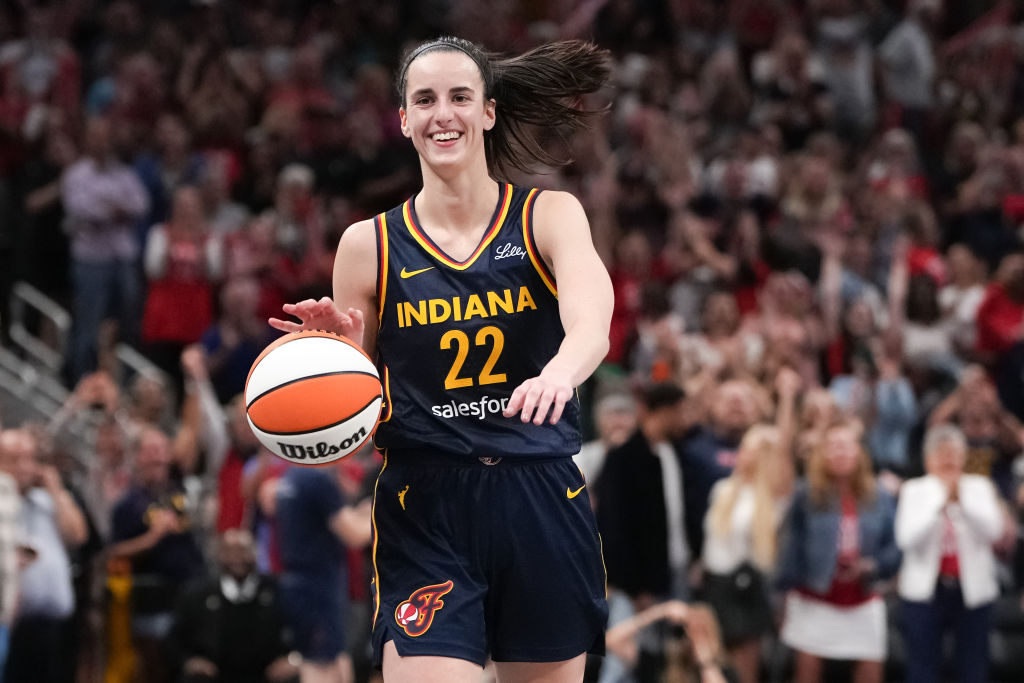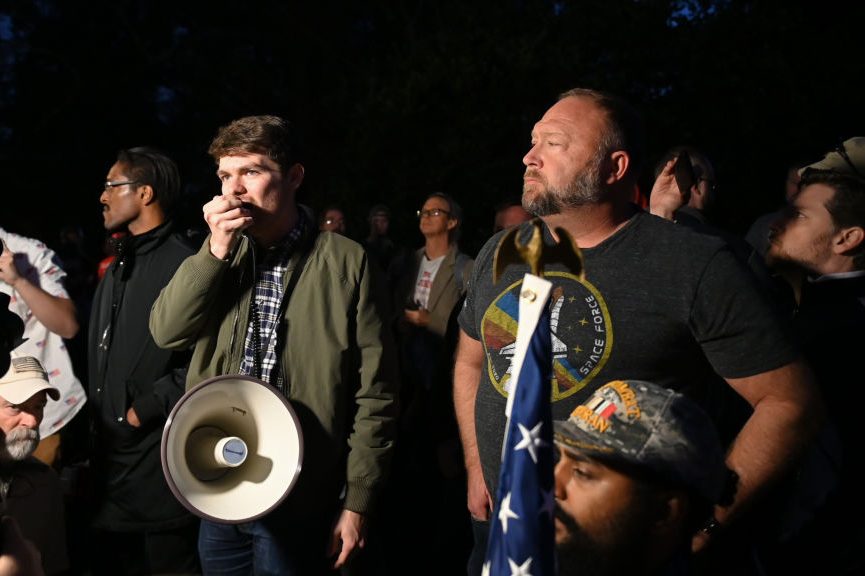The NCAA women’s big championship game takes place on Sunday. A lot of people will tune in – a ton more, in fact, than have historically given women’s basketball the time of day. This year, the Athletic reports, “Heading into the Final Four, all games have averaged 967,000 viewers, up 47 percent from 2023.”
Television networks can thank “the Caitlin Clark effect” for these remarkable viewership numbers. And girl dads and moms across the country should be thanking Caitlin Clark for putting women’s sports on the map and inspiring more youth sports participation, the benefits of which extend beyond physical health to include increased emotional, mental and social wellbeing.
For the uninitiated, Caitlin Clark is not-really-arguably the best female basketball player of all time. Playing for the University of Iowa, she set tons of NCAA records (read this list if you want to feel completely inadequate in life), including becoming the all-time leading scorer (that’s including men). She drains threes like nobody’s business from yards behind the three-point line, with a defender in her face. She is generous with the ball, setting assist records along with scoring ones.
“Want to hear a joke?” my friend asked me in sixth grade.
“Sure.”
“The WNBA.”
That “joke” made sense circa 2002, but it doesn’t now. Since Clark entered the professional arena, viewership of WNBA games in which she plays has tripled; the average attendance at games has doubled.
Caitlin Clark is an athletic anomaly and an economic powerhouse, having increased the GDP of the cities where she plays home games by many millions of dollars – a phenomenon dubbed “Clarkenomics.” But Caitlin Clark is also, as ESPN broadcaster Monica McNutt put it this week, “a white girl from the middle of America… [who represents] a whole lot to a lot of people.”
McNutt recounted how in covering the WNBA this past season, “The one thing that I cannot deny is the amount of little girls that were showing up to follow her.”
Indeed, the Aspen Institute’s Sports & Society Program’s Project Play report of 2024 found:
The Caitlin Clark effect is impacting youth sports… Overall sports participation rates for girls have increased in recent years during Clark’s time at Iowa and now in the WNBA. Although it’s difficult to quantify that directly to Clark, Sports & Fitness Industry Association senior advisor Tom Cove believes she plays a role and notes that participation increases among girls also occurred in the 1990s when Mia Hamm burst onto the soccer scene.
Clark has set up the Caitlin Clark Foundation “to uplift and improve the lives of youth and their communities through education, nutrition, and sport.” She’s also known to interact with her young fans, because, at just 23, she remembers what it was like:
I was that same kid a few years ago. I remember going to games like this. I remember wanting to high-five, wanting an autograph, wanting to catch a T-shirt. It does make (their) whole week, and it really takes a second out of your day. That’s how I was raised, to go out of your way to show kindness to somebody else.
Clark is not only amazing to watch on the court as a fierce competitor, but she also gives the impression of a being a good-humored, relatable person when she isn’t playing. As a guest on Saturday Night Live, for instance, she took barbs about women’s sports in stride and gave as good as she got (imagine AOC doing such a thing). She maintains a cool, well-earned confidence in the face of critics who have claimed “her race and her sexuality” are responsible for her popularity.
No matter. Caitlin Clark is going to continue to ball. She is going to continue setting records at the professional level, just like she did at the college level. She’s also going to assist the mainstream media – and little girls who look up to her as a role model – with a refreshing life perspective:
“It’s just life,” she said of the negativity that comes her way. “Everybody goes through some of the same stuff that I’ve gone through, and a lot of people go through a lot worse. And I just try to remind myself every single day how grateful I am to be in the position I am, and I try to treat everybody the same way that I would want to be treated. And I think it just speaks to the way I was raised and the way my parents raised me… I feel like one of my greatest skills is like, I really don’t care. I don’t. I don’t care. I believe in myself. I’m confident in myself. I’m confident in my teammates. I’m confident in my coaching staff… Everyone thinks they know everything and have an answer, but that’s just not reality, and that goes for all of professional sports, and really that goes for people and life.”
God bless Caitlin Clark – and JuJu Watkins and Paige Bueckers and all the other stars playing this weekend who show why being a must-watch athlete isn’t just for the guys and empower fellow females in the healthy sense of what feminism is supposed to mean.


























Leave a Reply